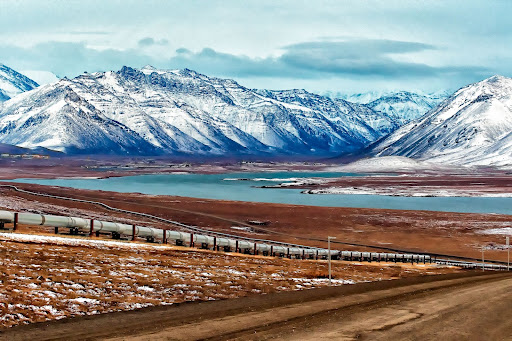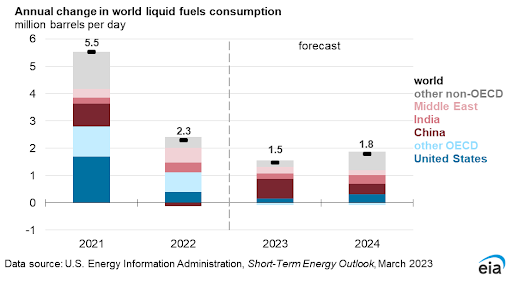- Keep Cool
- Posts
- Woe is Willow
Woe is Willow
Willow trees epitomize adaptability. In their flexibility, they bend to withstand many extremes. You can find them across much of the U.S. and Europe. They’re one of my favorite tree species.
Biden’s approval of ConocoPhillips Willow Project, a major new oil drilling project in Alaska, was an exercise in flexibility, too. Just not the flexibility that environmentalists, climate advocates, and many other climate-conscious folks would have hoped for. While Biden campaigned on a promise of no new oil leases in the U.S. in his term, this new project aims to produce up to 180,000 barrels of oil per day at max capacity. As always, presidential campaign promises prove a bit… adaptable.
Biden did also exercise some flexibility in other ways. The final lease area for Willow is more circumspect than initially forecast, featuring 40% less acreage and three drilling sites rather than five. Still, a new lease is a new lease. It will irrevocably disturb an otherwise pristine landscape and ecosystem.

An existing pipeline runs through Alaska’s North Slope, where ConocoPhilips will also develop Willow (via Shutterstock)
A drop in the barrel?
The world produces some 80M+ barrels of oil daily, a staggering figure. Against that number, 180,000 additional barrels of oil per day may seem like a drop in the bucket, or oil barrel, in this case. Surely, if the U.S. doesn’t produce those barrels, we’d import them from abroad, adding to the monumental profits of firms like Saudi Aramco (who reaped a record-breaking $160B+ in profit in 2022)?
You could take that perspective. And to some extent, it’s true – importing barrels of oil from, say, the Amazon may be more harmful, on net, than producing them domestically. But by similar logic, it’d be dangerously easy to discredit any single climate project or effort. In this vein, folks sometimes joke about carbon removal projects by comparing the thousands of tonnes of CO2 they will remove from the atmosphere vs. the 50B tonnes of annual global emissions to suggest the projects only save us ‘seconds’ (or milliseconds) of emissions ‘time.’
That’s the wrong attitude. No individual climate intervention or oil lease seems significant when cast against the global industrial system. The emissions from one coal plant wouldn’t either. Taken together, however, it all counts.
Nor is the Willow Project really all that insignificant in and of itself, either. As wrote Jenny Rowland-Shea in a recent article for American Progress:
... a single oil lease in the Alaskan Arctic threatens to negate all of that promised progress on renewables. [The] Willow oil drilling project is estimated to extract more than 160,000 barrels of oil per day for the next 30 years, which a Center for American Progress analysis finds would dwarf the greenhouse gas emissions avoided by fulfilling President Joe Biden’s 2030 commitments on renewables on public lands and waters.
Irony in the Arctic
There's also a twisted irony to developing new oil projects in the Arctic. It's hard to know whether they will remain viable or economically attractive in future decades. As the Biden-Harris campaign ticket noted in their 'Plan for a Clean Energy Revolution and Environmental Justice':
The Arctic is warming faster than anywhere else on the planet, because the melting of sea ice sets additional warming in motion which accelerates the melting in a self-reinforcing and amplifying cycle. Alaska is the fastest-warming U.S. state. Warmer temperatures are melting permafrost, creating sinkholes and erosion that damages ... pipelines.
Take a sec and read that last part again, with emphasis, please. While warmer temperatures in the Arctic will open up new shipping routes that geopolitical analysts are salivating over, it'll also jeopardize existing oil and gas and metal and mining infrastructure. In this case, 'building on a sinking foundation' takes on literal and metaphorical significance.
Earth's climate is incredibly complex, and it's hard to predict how it will change and behave in the coming decades. But there's a plausible scenario in which warming occasioned by the burning of oil produced at Willow renders the pipelines and drilling infrastructure ConocoPhillips will build in northern Alaska this decade unusable in a future decade.
The net-net
I can tell myself two stories about the Willow Project's approval and hold them both true. I contain multitudes.
For one, at the most macro level, you'd be hard-pressed to find signs of progress on climate goals if you looked at global supply and demand for oil, coal, and natural gas. They're at all-time highs.

Demand for oil globally → still going up, increasing EV sales be damned
That's discouraging. It makes me, truthfully, lie on the floor of my apartment and wonder what we're accomplishing in climate tech.
On the flip side, if it weren't for clean energy, growth in new EV sales, or the other tech undercurrents we track in this newsletter, demand for fossil fuels and global emissions would be higher. Progress is often 'sub-surface' for a while before it becomes exponential enough to make an observable dent at a global scale. That's hope I hold onto. If EV sales and solar deployment continue accelerating exponentially, maybe oil and coal demand will peak in a few years.
Still, it'd be foolish to assume that serious progress on mitigating climate change will be made with tech advancements alone (the supply side). We won't wake up to a world with a 100% clean power grid or all-electric transport overnight. Or for many decades, for that matter. Hence, the demand side does matter a lot, too, whether it's leaving barrels of oil in the ground (as the world will certainly need to, at some point) or using incrementally less of it by way of energy efficiency.
Where do I land on Willow? Leave those barrels in the frozen tundra, Biden! Unfortunately, I don't think he has much interest in pulling demand-side levers. The IRA was a massively helpful bill for climate tech. But it's all about stimulus and the supply side. It'll take a few more presidencies before a Commander in Chief throws their weight behind policies that don't rhyme with economic growth.
Reply